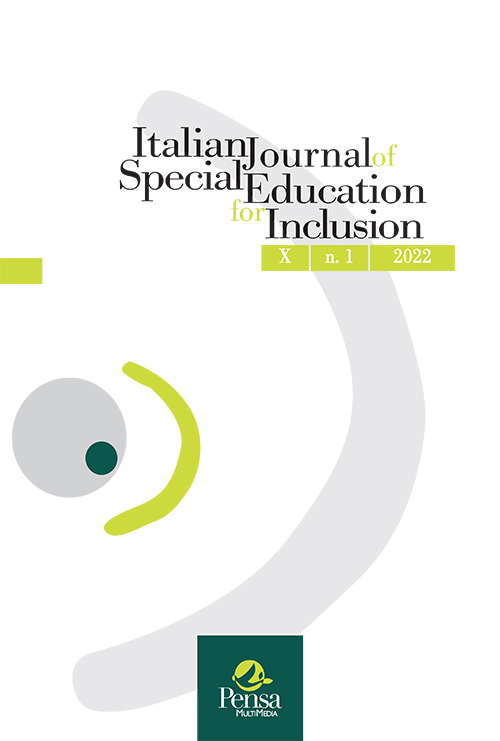Differently from who? Social representations of disability and Media Education at school for inclusive culture
DOI:
https://doi.org/10.7346/sipes-01-2022-01Abstract
The article develops a key to understanding about the relationships between social representations of disability and inclusive culture. First, thinking differently disability conditions requires an analysis of the cultural models that underlie the languages and representations that derive from them. In this perspective, the school has a significant impact to favor a co-evolutionary process of knowledge and cognitive decentralization for developing of adequate recognition of human differences.
Effective educational and training projects should make use the Media Education for linking the personal experiences of students to encourage the construction of knowledge and meaningful interpretative models about disability and difference. It is necessary deconstruct media products and languages to explain stereotypes and prejudices and be aware of the normalization processes underlying the “politically correct” practices. At the same time, the development of a critical sense and an aptitude for deepening by young generations passes through the fruition and making of self-representations messages. The pedagogical and didactic use of the various media languages, both in terms of a critical use and the conscious retrieval of authoritative sources, and in the perspective of self-representation and self-production of original contents can increase the dialogue between alterity and human differences. Being aware of the languages and elements underlying the universe of meanings that they convey is an indispensable step in the evolution of thought and therefore of actions towards inclusive cultures and societies.


